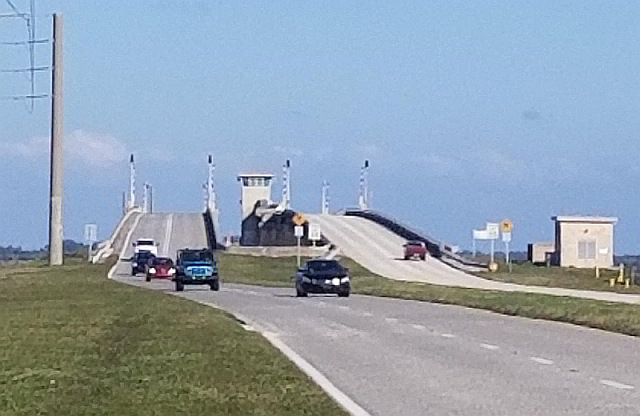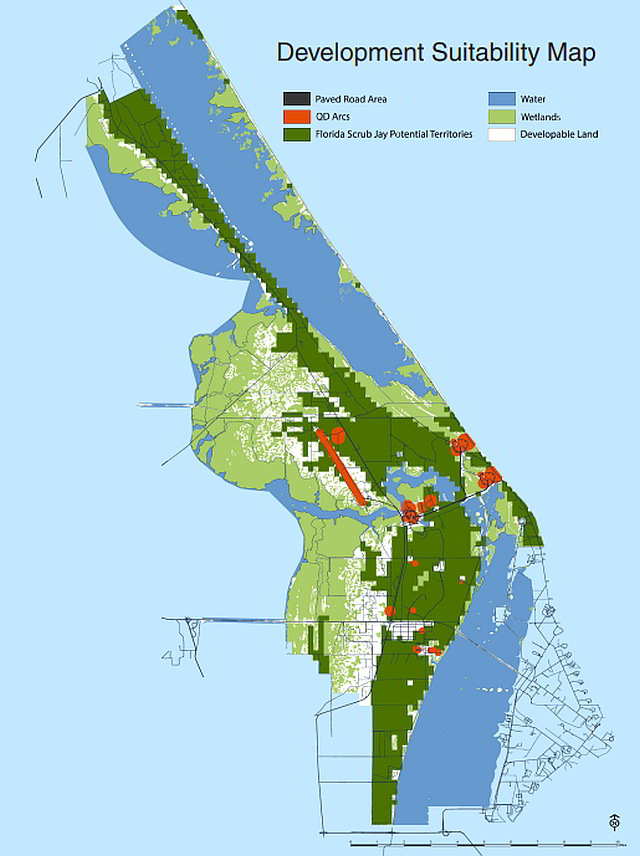IRLNews:2021-03-01/NASA Causeway Bridges and Beyond: Difference between revisions
mNo edit summary |
mNo edit summary |
||
| Line 10: | Line 10: | ||
|Type=Opinion-Editorial | |Type=Opinion-Editorial | ||
|Sub_Title=What does KSC's Future hold for the Indian River Lagoon? | |Sub_Title=What does KSC's Future hold for the Indian River Lagoon? | ||
|Text_Body=The 1960's | |Text_Body=The 1960's NASA causeways across the Indian and Banana River lagoons were constructed during a fast and furious space race that completely disregarded the environment in the name of national security. | ||
It wasn’t until 1970 that the National Environmental Protection Act (NEPA) was passed to regulate the environmental impact of Federal Agencies. NEPA requires federal organizations to adhere to a preset environmental review process for their activities. | It wasn’t until 1970 that the National Environmental Protection Act (NEPA) was passed to regulate the environmental impact of Federal Agencies. NEPA requires federal organizations to adhere to a preset environmental review process for their activities. | ||
| Line 38: | Line 38: | ||
The KSC Master Plan displays a map showing 8,000 acres of suitable vacant property available for development, including areas north of Haulover Canal in the heart of Merritt Island National Wildlife Refuge (MINWR) and Canaveral National Seashore (CANA). NASA is taking back the land it preserved in order to commercialize it. It appears that the primitive wilderness areas of MINWR and CANA are in jeopardy of development. | The KSC Master Plan displays a map showing 8,000 acres of suitable vacant property available for development, including areas north of Haulover Canal in the heart of Merritt Island National Wildlife Refuge (MINWR) and Canaveral National Seashore (CANA). NASA is taking back the land it preserved in order to commercialize it. It appears that the primitive wilderness areas of MINWR and CANA are in jeopardy of development. | ||
Soon Cape Canaveral Space Port and it’s many different commercial entities will be individually responsible for complying with state and federal environmental regulations. Can we trust | Soon Cape Canaveral Space Port and it’s many different commercial entities will be individually responsible for complying with state and federal environmental regulations. Can we trust commercial organizations to be good environmental stewards for the IRL national estuary? | ||
==Web Links== | ==Web Links== | ||
Revision as of 19:10, February 28, 2021
It wasn’t until 1970 that the National Environmental Protection Act (NEPA) was passed to regulate the environmental impact of Federal Agencies. NEPA requires federal organizations to adhere to a preset environmental review process for their activities.
There are 4 levels to a NEPA review, the first is Categorical Exclusion (CATEX), which allows federal agencies to list any activities that should be excluded from environmental review. Understandably, NASA Categorically Excluded most all of its activities in the name of national security.
SR405 Indian River Bridge Rebuild
A recent project to rebuild the 1964 Indian River Bridge avoided a NEPA environmental review when NASA Categorically Excluded the project, and then named the Federal Highway and Waterway Administration (FHWA) a co-agency on the project. As a federal co-agency the FHWA inherited the project’s Categorical Exclusion from NASA.
In 2018? NASA signed over ownership of the SR405 Indian River bridge, causeway, and 17 acres of adjacent land to the Florida Department of Transportation (FDOT). A convenient FHWA - FDOT Agreement from 2016 allowed FHWA to transfer the rebuild projects Categorical Exclusions to FDOT.
And so, FDOT now owns the causeway and it’s future bridge rebuild project is exempt from environmental review. A 57 year old earthen berm causeway; hurriedly constructed during the Cold War; built years before environmental regulations were enacted; will continue to constrict 80% of the Indian River lagoon at Addison Point.
The SR405 bridge rebuild is just an indication of what is ahead.
And Beyond
For decades, we have trusted NASA to be a good environmental steward for the largest stretch of undeveloped land on Florida’s East Coast. NASA’s mission statement includes promises of environmental stewardship, yet they perpetuate 1960’s construction methods that have drastically affected all three lagoons in the estuary.
NASA is quickly working to divest it’s non-mission critical facilities and vacant property at Kennedy Space Center (KSC). The 2017 KSC Master Plan outlines NASA’s intention to transition day to day operations of the launch center to SpaceFlorida and other commercial interests, in what is to become Cape Canaveral Space Port.
The state sponsored space port’s mission is to provide launch facilities for space tourism and commercial ventures. Should a commercial space port inherit the same environmental exclusions that we provided Cold War NASA?
The KSC Master Plan displays a map showing 8,000 acres of suitable vacant property available for development, including areas north of Haulover Canal in the heart of Merritt Island National Wildlife Refuge (MINWR) and Canaveral National Seashore (CANA). NASA is taking back the land it preserved in order to commercialize it. It appears that the primitive wilderness areas of MINWR and CANA are in jeopardy of development.
Soon Cape Canaveral Space Port and it’s many different commercial entities will be individually responsible for complying with state and federal environmental regulations. Can we trust commercial organizations to be good environmental stewards for the IRL national estuary?
Web Links
Documents
- 2017 KSC Master Plan (PDF 10pp 16.12MB)
- 2017 Cape Canaveral Spaceport Master Plan (PDF 68pp 20,86MB)
- 2018-12-06 NASA Causeway Bridge Project Development and Environment (PD&E) Study Flyer (PDF 2pp 1.78MB)
- 2019-10-17 FDOT NASA Causeway Bridge Public Meeting Notice (PDF 2pp 108KB)
- USCG NASA Indian River Bridge Public Notice and Bridge Plans (PDF 19pp 12.5MB
- MINWR The Shiloh Area and Proposed Launch Site (PDF 1p 197KB)



